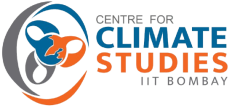Revisiting Cyclone Phailin: Drivers Of Recovery In Marine Fishing Communities
Coastal fishing communities are highly susceptible to disasters resulting from oceanic extreme weather events. However, there have been limited studies on understanding recovery exclusively in these communities. This study provides an assessment of the drivers of recovery in coastal fishing communities of Odisha — who were impacted by cyclone Phailin in 2013 — based on data collected through a household survey. The study recognises that recovery may be measured for different aspects and hence investigates the factors driving — levels of perception of overall recovery, and physical levels of recovery in income and housing — separately. Further, the factors linked to perception of overall recovery at three different time points after the cyclone are examined. The results show that economic capital, such as formal credits, high-value assets and aid, is extremely important for recovery. However, the influence of aid becomes significant a year after the disaster. The decision to move to safer places during the cyclone and having concrete/pucca housing can also influence recovery. Trust and cooperation with local government, an indicator of linking social capital, is positively driving recovery. However, the study contradicts the literature by indicating that ‘trust and cooperation with people outside the village’ is negatively linked to recovery. This highlights the fact that fishing communities are marginalised groups with poor bridging social networks. This empirical study contributes to the limited literature by examining drivers of recovery in three different aspects and providing a temporal understanding, and has implications for disaster risk management in poor and vulnerable communities.
Malakar, K., & Mishra, T. (2020). Revisiting cyclone Phailin: Drivers of recovery in marine fishing communities. International Journal of Disaster Risk Reduction, 48, 101609. https://doi.org/10.1016/j.ijdrr.2020.101609

